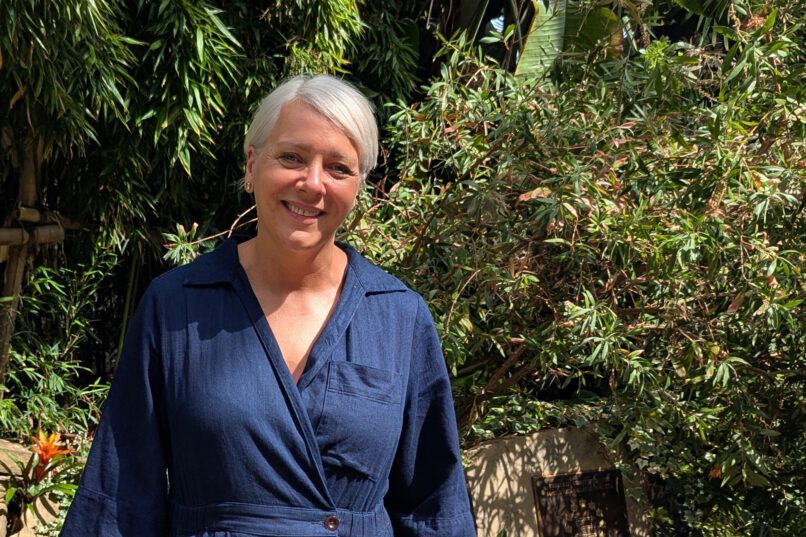The government’s plan to introduce a Fair Pay Agreement (FPA) for the adult social care sector is a watershed moment.
For us who work in care, the government’s decision – to prioritise social care pay above other sectors such as hospitality or transport – seems almost too good to be true.
For the first time in decades, adult social care is no longer seen by Whitehall as a second-tier workforce, but rightly, as a vital thread holding society together.
Those of us working in adult social care witness every day how pay, respect and working conditions directly shape the wellbeing of our support colleagues. Critically, these same factors also have a profound impact on the quality of life for the people they care for.
England’s 1.6 million frontline care and support workers – who make up 1 in 20 adults in employment – support people who draw upon care and support , in ways that are highly skilled, highly personal, and utterly vital.
The case for change
Yet as the government’s 2024 fair pay impact assessment notes: adult social care is struggling with high turnover, weak domestic recruitment, and an ongoing battle to compete with better-paid industries.
And practically every single job – such as working in a supermarket or a café – often pays more. In the wider sector, close to one in five care workers lives in poverty. Nearly one in ten are food insecure.
These are the people holding our communities together. And yet they are often paid little more than the legal minimum.
In 2022, we at Dimensions made a clear choice: to pay as many of our support workers as much as we could.
Today, every one of our permanent support workers earns at least 10p above the National Living Wage of £12.21 per hour.
We also made a strategic commitment to colleagues to pay the higher Real Living Wage in as many areas as is affordable. Last year, 9 in 10 support workers were paid the Real Living Wage or more. And we are aiming to reach similar levels this year.
The decision to pay as much as we can wasn’t easy for us. As a not-for-profit provider, we’re not loaded with money. We’re not backed by shareholders or private equity firms. But, in line with our value of integrity, paying more was quite simply the right thing to do.
The result for paying people more? A win for everyone – apart from our own cash reserves! Our voluntary staff turnover dropped from 29% to just 17% – well below the sector average of 25.8%.
And with lower turnover, we saw outcomes for many of the around 3,000 people we support improve, too.
If you receive support, having a consistent team around you builds far stronger bonds – and provides the kind of support and stability which leads to greater independence.
And in the adult social care sector, more independence often means reduced care and support costs.
Pay is only one piece of the puzzle. We also worked to improve working conditions. We placed particular focus on flexible working and work life balance – not an insignificant challenge in a rota-based environment.
But flexible working is essential to enable support colleagues to work while juggling childcare and other commitments. We’ve also funded qualifications through our own academy, and externally – because we recognise that support work is a skilled profession.
Shared responsibility
Fair pay cannot be delivered by government alone. Local authorities must commission care at sustainable rates.
Ringfenced pay, which local authorities must be required to adhere to, will ensure that any extra government allocation is spent where it’s needed most – with frontline care workers.
Providers – especially those with scale – must lead by example. Everyone involved in adult social care has a role to play in raising standards and protecting the workforce.
At our organisation, we don’t fear unions. We embrace them. We employ a full time national union convenor. We have a collective bargaining agreement with Unison and are open and honest about our finances with them, operating in a spirit of transparency and partnership. I truly believe this makes us a better employer.
We also encourage every colleague to join a union of their choice. Unfortunately, many care providers do not recognise union membership!
We firmly believe that affirming each individual worker’s right to be part of a union contributes to our reduced turnover and provides that extra sense of support and wellbeing.
But let’s be clear: replicating practices like paying more and embracing unions across a fragmented, underfunded sector needs a level playing field.
That’s what the Fair Pay Agreement must deliver – binding, negotiated minimums that raise the floor for everyone.
What comes next
We do not suggest that every provider must mirror us. But we do believe that our experience offers valuable lessons: Paying more leads to deliver better outcomes. Collaboration with unions works. Transparency builds trust.
These factors are not luxuries – they are essential for any provider serious about better care and support.
The government’s decision to introduce a Fair Pay Agreement, particularly one that prioritises the adult social care workforce, is bold and principled.
Now comes the hard part: ensuring that the agreement delivers for workers, works for providers of all sizes, and secures better outcomes for people who draw upon care and support.

